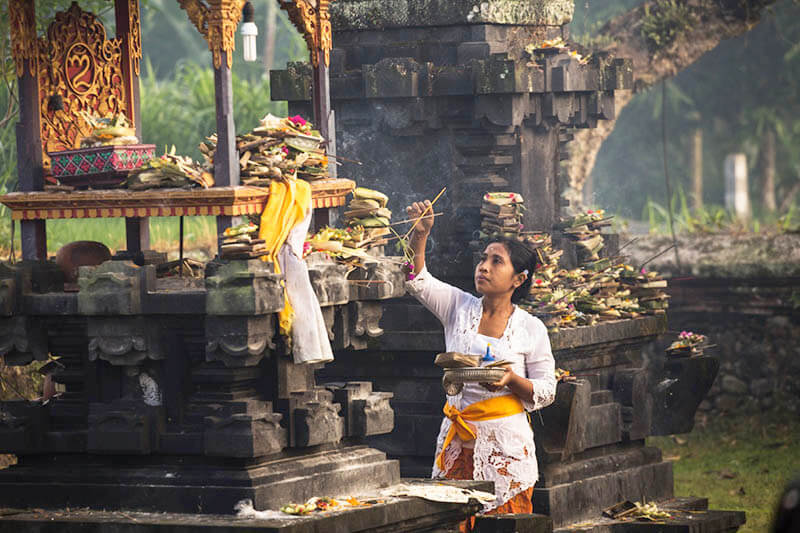Religious Influence: Faith and Politics in Indonesia – What I’ve Learned Living Here
JAKARTA, turkeconom.com – Indonesia, the world’s largest archipelago and home to a diverse population, is renowned for its rich tapestry of cultures and religions. The interplay between religious influence and politics is profound, shaping the nation’s identity and governance. Having lived in Indonesia, I have gained valuable insights into how faith intersects with political life, impacting everything from policy decisions to social dynamics. This article explores the religious landscape in Indonesia and its significant influence on politics.
The Religious Landscape of Indonesia

A Diverse Mosaic
Indonesia is predominantly Muslim, with approximately 87% of the population adhering to Islam. However, the country is also home to significant communities of Christians, Hindus, Buddhists, and indigenous beliefs. This diversity contributes to a complex religious landscape, where multiple faiths coexist and interact.
Islam’s Dominant Role
Islam plays a central role in Indonesian society and politics. The country’s founding principles, known as Pancasila, emphasize belief in one God, reflecting the importance of faith in national identity. Political parties often align themselves with Islamic values, influencing legislation and public policy.
The Interplay of Faith and Politics
Political Parties and Religious Identity
Many political parties in Indonesia derive their support from religious affiliations. Islamic parties, such as the Partai Persatuan Pembangunan (PPP) and the Partai Keadilan Sejahtera (PKS), advocate for policies that align with Islamic teachings. These parties often engage in debates around issues such as morality, education, and social justice, framing them within a religious context.
Religious Leaders as Political Influencers
Religious leaders hold significant sway over their communities and can influence political outcomes. Their endorsements or criticisms can mobilize voters and shape public opinion. For example, prominent clerics often speak out on national issues, urging followers to support specific candidates or policies based on religious teachings.
The Role of Religion in Governance
Religion also plays a role in governance, with various laws and regulations reflecting Islamic principles. For instance, local governments in some regions implement Sharia law, affecting areas such as marriage, inheritance, and public conduct. This intertwining of faith and politics can lead to tensions, particularly in areas with diverse religious populations.
Personal Observations on Religious Influence
Community Engagement and Social Cohesion
Living in Indonesia, I have observed that religious gatherings often serve as platforms for community engagement. Mosques, churches, and temples become centers for social activities, fostering a sense of belonging and solidarity among residents. This communal aspect of faith contributes to social cohesion, even amidst political differences.
Navigating Religious Sensitivities
Understanding the religious context is crucial for navigating social interactions in Indonesia. Discussions about politics can quickly become intertwined with religious beliefs, making it essential to approach such topics with sensitivity and respect. I have learned to appreciate the nuances of religious influence in political discourse, recognizing that faith shapes individuals’ perspectives and values.
The Impact of Religious Festivals
Religious festivals, such as Idul Fitri and Christmas, not only celebrate faith but also serve as opportunities for political leaders to connect with constituents. During these events, politicians often deliver messages of unity and support, reinforcing the idea that faith and politics are inseparable in Indonesian society.
Challenges and Tensions
Sectarianism and Religious Intolerance
While Indonesia is celebrated for its diversity, tensions can arise between different religious groups. Instances of sectarian violence and discrimination highlight the challenges of maintaining harmony in a pluralistic society. Political manipulation of religious sentiments can exacerbate these tensions, leading to conflicts that threaten social stability.
Balancing Secularism and Religious Values
Indonesia’s constitution guarantees freedom of religion, yet balancing secular governance with religious values remains a contentious issue. Debates over the role of religion in public life often surface, particularly regarding laws that some perceive as favoring one faith over others. This ongoing dialogue reflects the complexities of navigating a diverse religious landscape.
Conclusion
The influence of religion on politics in Indonesia is profound and multifaceted. As a nation that embraces diversity, Indonesia exemplifies how faith can shape political identity, community engagement, and governance. My experiences living here have underscored the importance of understanding this interplay, as it informs not only political dynamics but also social relationships.
Navigating the complexities of religious influence requires sensitivity and respect for the diverse beliefs that coexist within Indonesian society. By appreciating the role of faith in shaping political discourse, we can foster a more inclusive understanding of Indonesia’s rich cultural landscape.
Sharpen Your Skills: Delve into Our Expertise on Politic
Check Out Our Latest Piece on Corruption Issues!











